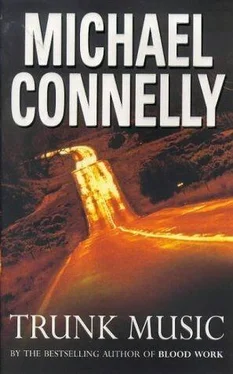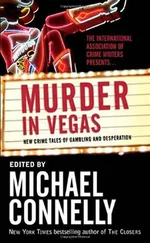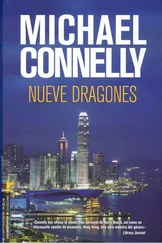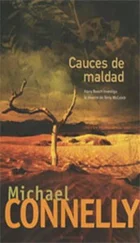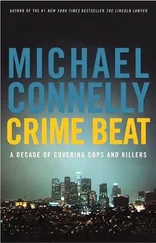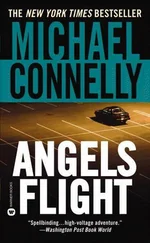“Just one. How can you call yourself a cop when all you do is sit up here and conduct these bullshit investigations into bullshit?”
Zane reached over and put a hand on Bosch’s forearm to quiet him.
“No, that’s okay,” Chastain said, waving off Zane’s effort to calm things. “I don’t mind answering. In fact, I get that question a lot, Bosch. Funny, but it always seems I get it from the cops I happen to be investigating. Anyway, the answer is that I take pride in what I do because I represent the public, and if there is no one to police the police then there is no one to keep the abuse of their wide powers in check. I serve a valuable purpose in this society, Detective Bosch. I’m proud of what I do. Can you say the same?”
“Yeah, yeah, yeah,” Bosch said. “I’m sure that sounds great on tape for whoever listens to it. I get the feeling you probably sit alone at night and listen to it yourself. Over and over again. After a while, you believe it. But let me ask you this, Chastain. Who polices the police who police the police?”
Bosch stood up and Zane followed. The interview was over.
After leaving IAD and thanking Zane for his help, Bosch went down to the SID lab on the third floor to see Art Donovan. The criminologist had just come back from a crime scene and was sorting through evidence bags and checking the material against an evidence list. He looked up as Bosch was approaching.
“How’d you get in here, Harry?”
“I know the combination.”
Most detectives who worked RHD knew the door-lock combo. Bosch hadn’t worked RHD in five years and they still hadn’t changed it.
“See,” Donovan said. “That’s how the trouble starts.”
“What trouble?”
“You coming in here while I’m handling evidence. Next thing you know some wiseass defense lawyer says it got tainted and I look like an asshole on national TV.”
“You’re paranoid, Artie. Besides, we’re not due for another trial of the century for at least a few years.”
“Funny. What do you want, Harry?”
“You’re the second guy who said I was funny today. What happened with my shoe prints and all the rest of the stuff?”
“The Aliso case?”
“No, the Lindbergh case. What do you think?”
“Well, I heard that Aliso wasn’t yours anymore. I’m supposed to have everything ready for the FBI to pick up.”
“When is that?”
Donovan looked up from what he was doing for the first time.
“They just said they’d send somebody by five.”
“Then it’s still my case until they show up. What about the shoe prints you pulled?”
“There’s nothing about them. I sent copies to the bureau’s crime lab in D.C. to see if they could ID the make and model.”
“And?”
“And nothing. I haven’t heard back. Bosch, every department in the country sends shit to them. You know that. And last I heard, they don’t drop everything they’re doing when a package from the LAPD comes in. It will probably be next week sometime before I hear back. If I’m lucky.”
“Shit.”
“It’s too late to call the East Coast now, anyway. Maybe Monday. I didn’t know they suddenly became so important to you. Communication, Harry, that’s the secret. You ought to try it sometime.”
“Never mind that, do you still have a set of copies?”
“Yup.”
“Can I get a set?”
“Sure can, but you’re going to have to wait about twenty minutes or so till I’m done with this.”
“Come on, Artie, it’s probably just sitting in a file cabinet or something. It’ll take you thirty seconds.”
“Would you leave me alone?” Donovan said with exasperation. “I’m serious, Harry. Yes, it’s sitting in a file and it would only take me half a minute to get it for you. But if I leave what I’m doing here, I could get crucified when I testify in this case. I can see it now, some shyster all righteous and angry and saying, ‘You are telling this jury that while in the middle of handling evidence from this case you got up and handled evidence from another?’ And you don’t have to be F. Lee Bailey anymore to make it sound good to a jury. Now leave me alone. Come back in a half hour.”
“Fine, Artie, I’ll leave you alone.”
“And buzz me when you come back. Don’t just come in. We gotta get that combination changed.”
The last line he said more to himself than to Bosch.
Bosch left the way he had come in and took the elevator down to go outside and have a smoke. He had to walk out to the curb and light up because it was now against departmental rules to stand outside the front door of Parker Center and smoke. So many cops working there were addicted to cigarettes that there had often been a crowd outside the building’s main doors and a permanent haze of blue smoke had begun to hang over the entrance. The chief thought this was unsightly and instituted the rule that if you left the building to smoke, you had to leave the property as well. Now the front sidewalk along Los Angeles Street often looked like the scene of a labor action, with cops, some even in uniform, pacing back and forth in front of the building. The only thing missing from the scene was picket signs. The word was that the police chief had consulted with the city attorney to see if he could outlaw smoking on the sidewalk as well, but he was told that the sidewalk was beyond the bounds of his control.
As Bosch was lighting a second cigarette off the first, he saw the huge figure of FBI agent Roy Lindell waltzing leisurely out of the glass doors of the police headquarters. When he got to the sidewalk, he turned right and headed toward the federal courthouse. He was coming directly toward Bosch. Lindell didn’t see Bosch until he was a few feet away. It startled him.
“What is this? Are you waiting for me?”
“No, I’m having a cigarette, Lindell. What are you doing?”
“None of your business.”
He made a move to pass but Bosch stopped him with the next line.
“Have a nice chat with Chastain?”
“Look, Bosch, I was asked to come over and give a statement and I obliged. I told the truth. Let the chips fall.”
“Trouble is you don’t know the truth.”
“I know you found that gun and I didn’t put it there. That’s the truth.”
“Part of it, at least.”
“Well, it’s the only part I know, and that’s what I told him. So have a good day.”
He passed by Bosch and Harry turned around to watch him go. Once again he stopped him.
“You people might be satisfied with only part of the truth. But I’m not.”
Lindell turned around and stepped back to Bosch.
“What’s that supposed to mean?”
“Figure it out.”
“No, you tell me.”
“We were all used, Lindell. I’m going to find out by who. When I do, I’ll be sure to let you know.”
“Look, Bosch, you don’t have the case anymore. We’re working it and you better stay the fuck away from it.”
“Yeah, you guys are working the case, all right,” Bosch said sarcastically. “I’m sure you’re pounding the pavement on this one. Let me know when you figure it out.”
“Bosch, it’s not like that. We care about it.”
“Give me one answer, Lindell.”
“What?”
“In the time you were under, did Tony Aliso ever bring his wife over there to make a pickup?”
Lindell was quiet a moment while he decided whether to answer. He finally shook his head.
“Not once,” he said. “Tony always said she hated the place. Too many bad memories, I guess.”
Bosch tried to remain cool.
“Memories of Vegas?”
Lindell smiled.
“For somebody who supposedly has all the answers, you don’t know much, do you, Bosch? Tony met her in the club something like twenty years ago. Long before my time. She was a dancer and Tony was going to make her a movie star. Same story he was using on ’em to the end. Only, after her I guess he got wise and learned not to marry every one of them.”
Читать дальше
